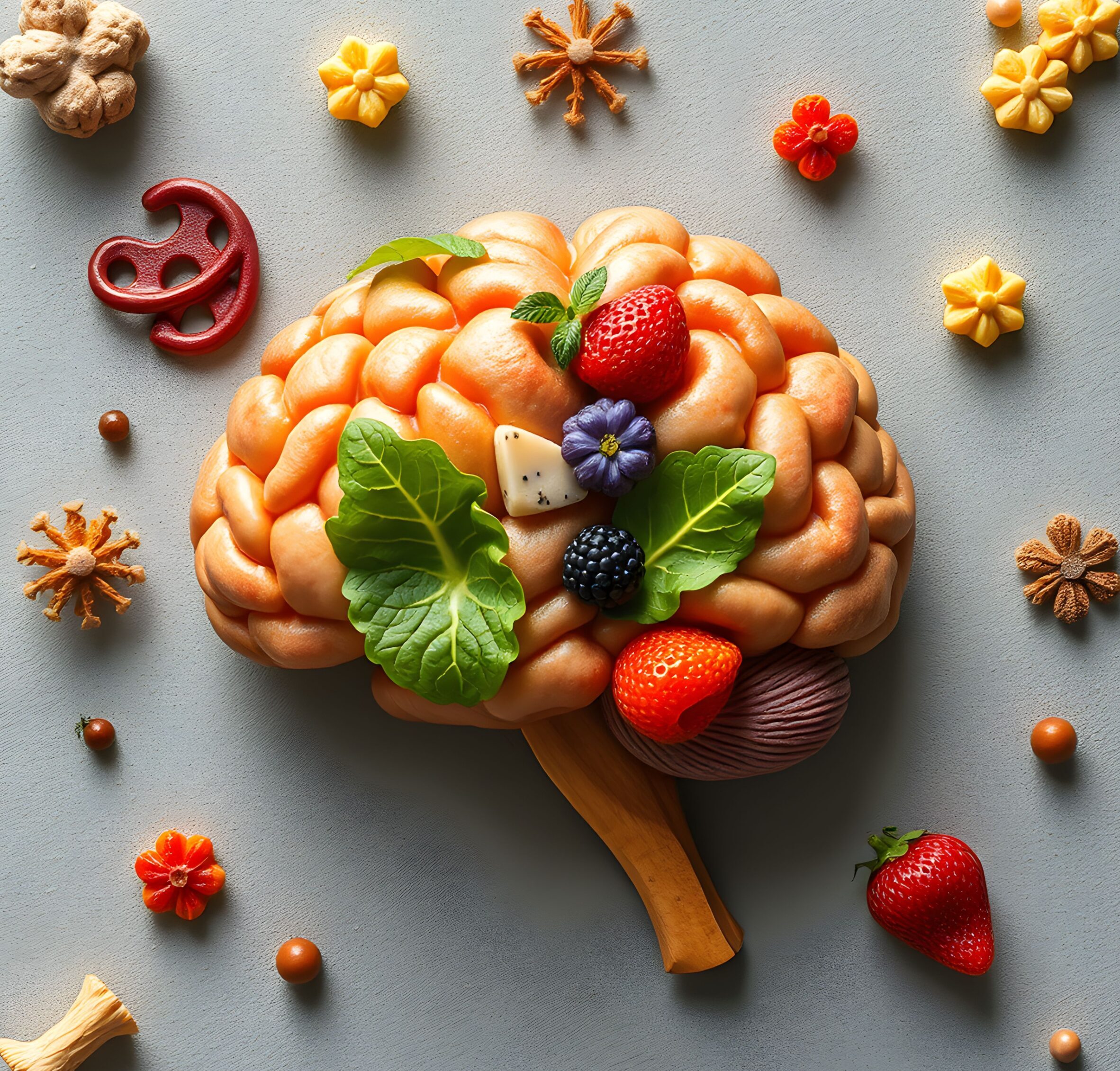1. Control Blood Pressure
Hypertension, or high blood pressure, is one of the most significant modifiable risk factors for dementia. When blood pressure is elevated, it can cause damage to the blood vessels, affecting the brain’s ability to receive an adequate blood supply. This reduces oxygen and nutrients to brain cells, leading to cognitive impairment and increasing the likelihood of developing dementia.
Steps to Monitor and Control Blood Pressure:
- Get Regular Check-ups: Regularly monitor your blood pressure with your healthcare provider, especially if you’re over 40 or have a family history of high blood pressure. Early detection can prevent long-term damage.
- Adopt a Low-Sodium Diet: Reducing sodium intake is crucial in managing blood pressure. The American Heart Association recommends no more than 2,300 milligrams of sodium per day, ideally reducing it to 1,500 mg. Focus on eating fresh, whole foods and avoiding processed meals.
- Increase Potassium Intake: Potassium helps balance out the negative effects of sodium. Foods rich in potassium include bananas, spinach, potatoes, beans, and avocados.
- Exercise Regularly: Engaging in at least 30 minutes of moderate exercise most days of the week, such as walking or cycling, can help maintain healthy blood pressure levels.
- Limit Alcohol Intake: Drinking in moderation can help keep your blood pressure in check. Aim for no more than one drink per day for women and two for men.
- Practice Stress Management: Chronic stress contributes to high blood pressure. Incorporating relaxation techniques like deep breathing, progressive muscle relaxation, or yoga can help reduce overall stress.
- Medication and Professional Guidance: If lifestyle changes alone aren’t sufficient, medication prescribed by a healthcare provider can help control blood pressure and prevent related risks.
2. Optimize Cholesterol Levels
Cholesterol, particularly high levels of LDL (bad) cholesterol, can form plaques in blood vessels, impeding blood flow to the brain. Elevated cholesterol is linked to an increased risk of vascular dementia and Alzheimer’s disease. Keeping cholesterol levels balanced helps preserve healthy blood vessels and reduces the risk of cognitive decline.
Steps to Improve Cholesterol Levels:
- Choose Healthy Fats: Replacing saturated fats with unsaturated fats, such as those found in olive oil, nuts, and seeds, can help reduce LDL cholesterol levels. Aim to incorporate omega-3 fatty acids from sources like salmon and flaxseeds.
- Increase Fiber Intake: Soluble fiber, found in oats, beans, lentils, and certain fruits, binds to cholesterol and helps remove it from the bloodstream. This can lower overall cholesterol levels.
- Exercise Regularly: Cardiovascular exercises like brisk walking, swimming, or cycling can help increase HDL (good) cholesterol and lower LDL cholesterol, contributing to heart and brain health.
- Avoid Trans Fats: Trans fats, found in many processed foods and baked goods, can increase LDL cholesterol and decrease HDL cholesterol. Opt for whole, unprocessed foods as much as possible.
- Quit Smoking: Smoking negatively impacts cholesterol levels by lowering HDL cholesterol. Quitting smoking not only helps improve cholesterol levels but also significantly benefits cardiovascular and cognitive health.
- Medications When Necessary: If cholesterol levels remain high despite dietary and lifestyle changes, statins or other cholesterol-lowering medications can be prescribed by a doctor to reduce the risk of dementia.
- Monitor Your Cholesterol: Regularly check your cholesterol levels through blood tests. By maintaining a healthy range, you can significantly reduce the risk of developing vascular dementia and Alzheimer’s disease.
3. Maintain Healthy Blood Sugar Levels
Diabetes and insulin resistance contribute to the development of dementia by causing brain inflammation and oxidative stress. Studies show that people with type 2 diabetes are at a higher risk of Alzheimer’s and other forms of dementia. Maintaining healthy blood sugar levels prevents the damage caused by high glucose in the bloodstream.
Steps to Control Blood Sugar Levels:
- Eat a Low Glycemic Index Diet: Foods that have a low glycemic index (GI), such as whole grains, vegetables, and legumes, cause slower, more stable increases in blood sugar. Reducing intake of sugary snacks and refined carbohydrates can prevent blood sugar spikes.
- Exercise Regularly: Physical activity improves insulin sensitivity and helps regulate blood sugar levels. Regular exercise also promotes weight loss and reduces the risk of developing diabetes.
- Monitor Blood Glucose: If you have prediabetes or diabetes, regular monitoring of blood glucose levels can help prevent complications. This is especially crucial for those with a family history of diabetes.
- Choose Healthy Carbohydrates: Incorporate whole foods like quinoa, brown rice, and sweet potatoes to ensure stable blood sugar levels. Avoid sugary drinks and snacks that can lead to insulin resistance over time.
- Limit Processed Foods: Processed foods, which are often high in refined sugars and unhealthy fats, can cause insulin resistance and weight gain. Focus on whole, nutrient-dense foods instead.
- Medications and Insulin: For individuals diagnosed with diabetes, medications, or insulin therapy prescribed by a healthcare provider can help maintain stable blood sugar levels.
- Manage Stress Effectively: Chronic stress can contribute to insulin resistance and blood sugar imbalances. Mindfulness practices, yoga, or spending time outdoors can help alleviate stress and improve blood sugar control.
4. Stay Physically Active
Physical activity is one of the most powerful tools for maintaining cognitive health. Regular exercise enhances blood flow to the brain, stimulates the growth of new neurons, and reduces the risk of dementia by promoting overall health.
Steps to Incorporate Regular Exercise:
- Aim for Aerobic Exercise: Activities like walking, swimming, cycling, or dancing improve cardiovascular health, which directly benefits brain function by enhancing blood flow and oxygen delivery.
- Strength Training: Lifting weights or engaging in bodyweight exercises (like squats or lunges) at least twice a week strengthens muscles and bones, which can help maintain overall physical and mental health.
- Make Movement Enjoyable: Find an activity you enjoy, whether it’s playing a sport, hiking in nature, or taking dance classes. The more you enjoy physical activity, the more likely you are to stick with it.
- Socialize While Exercising: Participating in group fitness classes or exercising with a friend can provide social benefits, which in turn improve cognitive health and reduce the risk of dementia.
- Increase Daily Movement: In addition to scheduled workouts, increase your daily movement by taking the stairs, walking or biking instead of driving, and standing while working.
- Try Mind-Body Exercises: Practices like yoga, Pilates, or tai chi combine physical movement with mental focus, promoting relaxation and reducing stress, which can enhance brain health.
- Start Slow: If you’re new to exercise, start with lighter activities and gradually increase the intensity. This ensures that exercise becomes a sustainable part of your routine without risking injury.
5. Adopt a Brain-Healthy Diet
The foods you consume directly affect the health of your brain. The Mediterranean Diet and MIND Diet are both linked to improved cognitive function and a lower risk of dementia. These diets emphasize whole foods, healthy fats, and brain-boosting nutrients that support cognitive health.
Steps for a Brain-Healthy Diet:
- Focus on Whole Foods: Incorporate a variety of fruits, vegetables, whole grains, nuts, seeds, and legumes. These foods are rich in antioxidants, vitamins, and minerals that protect brain cells from oxidative stress.
- Incorporate Healthy Fats: Healthy fats, particularly omega-3 fatty acids found in fish, flaxseeds, and walnuts, are essential for brain health. Omega-3s support memory function and help reduce inflammation in the brain.
- Limit Saturated Fats and Sugar: High intake of processed foods, sugars, and unhealthy fats increases inflammation and can negatively affect brain function. Minimize consumption of fried foods, sugary snacks, and refined carbs.
- Eat Leafy Greens: Leafy vegetables like spinach, kale, and collard greens are packed with vitamins and antioxidants, including folate, which support cognitive function and protect against memory loss.
- Drink Green Tea: Green tea contains polyphenols, which have antioxidant properties that protect brain cells from damage. Studies suggest that drinking green tea regularly can help improve memory and cognitive function.
- Add Berries: Berries, especially blueberries, contain flavonoids that improve brain function. These antioxidants help reduce oxidative stress and inflammation, both of which can contribute to cognitive decline.
- Limit Red Meat: Excessive consumption of red meat can lead to the accumulation of harmful substances in the brain, which may increase the risk of cognitive decline. Opt for lean proteins like poultry, fish, or plant-based alternatives.
6. Challenge Your Brain Regularly
Engaging in mentally stimulating activities helps keep the brain sharp. Studies have shown that lifelong learning and challenging cognitive tasks can lower the risk of dementia by promoting neuroplasticity, or the brain’s ability to form new connections.
Steps to Stimulate Your Brain:
- Learn New Skills: Take up a new hobby or learn something you’ve never done before, like playing an instrument, learning a new language, or trying a new craft. This keeps the brain active and engaged.
- Solve Puzzles and Play Games: Activities like crossword puzzles, sudoku, and chess stimulate different parts of the brain. Strategy games challenge your cognitive abilities and improve memory, problem-solving, and planning skills.
- Read Regularly: Reading books, articles, or even listening to audiobooks helps expand your knowledge and improve your ability to think critically. Diverse reading materials also promote better memory retention.
- Join Social Activities: Engaging in group discussions, book clubs, or other social activities where complex ideas are exchanged promotes cognitive engagement and helps reduce the risk of isolation, a risk factor for dementia.
- Use Technology for Learning: Use online platforms like language learning apps, online courses, or virtual museums to expand your knowledge. Technology can offer a wide range of intellectual challenges to keep your brain sharp.
- Practice Memory Techniques: Memory games, mnemonics, or visual aids are excellent ways to exercise your brain. Try recalling daily activities or practicing memorization techniques to enhance your cognitive ability.
- Take Breaks: It’s essential to avoid cognitive overload by giving your brain periodic breaks. Mental fatigue can impair cognitive performance, so balancing intense brain work with relaxation is crucial.
7. Get Sufficient Sleep
Sleep plays a vital role in cognitive health. During sleep, the brain consolidates memories, clears out toxins, and restores its cognitive functions. Poor or insufficient sleep can lead to cognitive impairment and increase the risk of developing dementia.
Steps to Improve Sleep Quality:
- Establish a Regular Sleep Schedule: Going to bed and waking up at the same time every day helps regulate your body’s internal clock. Aim for 7 to 9 hours of sleep each night, depending on your individual needs.
- Create a Relaxing Bedtime Routine: Establish a calming pre-sleep routine, such as reading, meditating, or listening to soothing music, to help signal to your body that it’s time to wind down.
- Limit Screen Time: The blue light emitted by phones, tablets, and computers can interfere with your sleep cycle. Avoid screens for at least an hour before bedtime to improve sleep quality.
- Keep Your Sleep Environment Comfortable: Make sure your bedroom is conducive to rest by maintaining a cool, quiet, and dark environment. Consider using blackout curtains or white noise machines if needed.
- Avoid Caffeine and Alcohol: Both caffeine and alcohol can disrupt sleep patterns. Try to avoid consuming these substances in the hours leading up to bedtime.
- Exercise Regularly: Regular physical activity can help improve sleep quality. However, avoid vigorous exercise too close to bedtime, as it can make it harder to fall asleep.
- Seek Medical Advice: If you suffer from chronic insomnia or other sleep disorders, seek guidance from a healthcare professional. Proper treatment can improve sleep quality and protect cognitive health.
8. Maintain a Healthy Weight
Obesity is a major risk factor for cognitive decline and dementia. Excess body weight, particularly abdominal fat, increases the likelihood of developing conditions like diabetes, hypertension, and high cholesterol, all of which are linked to an increased risk of dementia.
Steps to Maintain a Healthy Weight:
- Adopt a Balanced Diet: A diet rich in fruits, vegetables, lean proteins, and healthy fats supports weight management while providing essential nutrients for brain health. Focus on nutrient-dense foods and avoid excessive calorie intake.
- Exercise Regularly: Physical activity is crucial for maintaining a healthy weight. Aim for a mix of aerobic exercises and strength training to burn calories, build muscle, and maintain metabolic health.
- Track Your Food Intake: Keeping a food journal can help you stay aware of your eating habits. This allows you to make adjustments if necessary and ensures you are meeting your nutritional goals.
- Drink Plenty of Water: Staying hydrated is essential for metabolic function and can help curb unnecessary snacking. Aim to drink at least 8 cups of water a day.
- Get Support: Consider working with a nutritionist or joining a weight-loss program if you need extra help. Having support can keep you motivated and help you stay on track.
- Set Realistic Goals: Aim for slow and steady weight loss if you’re looking to lose weight. Gradual changes in your diet and exercise routine are more sustainable in the long term.
- Avoid Crash Diets: Extreme dieting can lead to nutrient deficiencies and stress on your body. Focus on balanced, sustainable changes to ensure long-term success.
9. Socialize Regularly
Social isolation is a significant risk factor for dementia. Engaging with friends, family, or a community provides mental stimulation, reduces stress, and promotes overall well-being. Studies show that individuals with robust social networks are less likely to experience cognitive decline as they age.
Steps to Maintain Social Connections:
- Join Social Clubs or Groups: Participate in community organizations, clubs, or groups that align with your interests. Whether it’s a book club, gardening group, or volunteer organization, these social settings promote engagement and mental stimulation.
- Stay in Touch with Family and Friends: Regular phone calls, video chats, or in-person visits with loved ones can help maintain emotional connections and reduce feelings of loneliness.
- Attend Group Events: Social gatherings, such as parties, cultural events, or even weekly meetups, encourage social interaction and reduce isolation, which is crucial for mental health.
- Engage in Conversations: Having meaningful conversations with others, even on simple topics, can stimulate the brain and promote cognitive health.
- Be Active in Your Local Community: Volunteering or participating in local events can provide a sense of purpose and connection. Giving back to your community fosters positive social interaction.
- Seek Professional Help If Necessary: If you’re struggling with loneliness or depression, consider seeking professional help. Therapy or counseling can help address underlying issues and improve your social life.
- Make New Connections: Even as an adult, it’s important to make new friends. Joining new clubs, taking classes, or pursuing hobbies are excellent ways to meet new people and build meaningful relationships.
10. Avoid Head Injuries
Head injuries, particularly repeated concussions, are linked to an increased risk of dementia, including chronic traumatic encephalopathy (CTE). Protecting your head from injury is essential for long-term brain health.
Steps to Prevent Head Injuries:
- Wear Protective Gear: Always wear helmets while engaging in activities like cycling, skateboarding, skiing, or playing contact sports. This reduces the risk of head trauma.
- Drive Safely: Always wear a seatbelt and ensure that all passengers do the same. Avoid distractions while driving and adhere to speed limits to minimize the risk of accidents.
- Create a Safe Environment: In your home, remove tripping hazards such as loose rugs, poor lighting, or clutter. Ensuring a safe living environment reduces the risk of falls, which can lead to head injuries.
- Be Cautious in Sports: If participating in contact sports, ensure that proper safety protocols are followed. Work with your coach or instructor to ensure you are using the correct techniques to prevent injury.
- Seek Immediate Medical Attention: If you sustain a head injury, seek immediate medical attention, even if the symptoms seem mild. Prompt care can prevent long-term damage and complications.
- Monitor Symptoms of Concussions: If you or someone else has had a head injury, be aware of symptoms like confusion, dizziness, nausea, or memory loss, which may indicate a concussion. Seek medical evaluation if these occur.
- Avoid Risky Activities: As we age, the risk of falls increases. Minimize high-risk activities, such as climbing ladders or walking on uneven surfaces, to prevent accidents that could lead to brain injuries.
11. Reduce Chronic Stress
Chronic stress can have a detrimental impact on the brain, contributing to cognitive decline and increasing the risk of dementia. Long-term stress leads to the release of hormones like cortisol, which can damage brain cells and impair memory.
Steps to Manage Stress Effectively:
- Practice Mindfulness and Meditation: Mindfulness techniques, such as deep breathing exercises, progressive muscle relaxation, or guided meditation, can help reduce stress and promote relaxation. Even a few minutes of mindfulness each day can be beneficial.
- Engage in Regular Physical Activity: Exercise is one of the most effective ways to reduce stress. Activities like walking, swimming, or yoga promote the release of endorphins, which are natural mood elevators.
- Develop Healthy Coping Mechanisms: Find healthy ways to cope with stress, such as journaling, talking to a trusted friend, or engaging in creative outlets like painting or gardening. These activities help manage stress in a positive way.
- Prioritize Self-Care: Make time for activities that bring you joy and relaxation. Taking care of your physical, emotional, and mental needs is essential for stress reduction.
- Seek Professional Help When Needed: If stress becomes overwhelming, seek the help of a therapist or counselor. Cognitive-behavioral therapy (CBT) and other stress management strategies can help individuals better manage stress.
- Set Boundaries: Overcommitting to work, social obligations, or family duties can lead to stress. Learning to set boundaries and saying “no” when necessary can prevent burnout and promote better mental health.
- Get Enough Rest: Prioritize sleep and relaxation. Chronic sleep deprivation can exacerbate stress and lead to cognitive decline. A well-rested mind is better equipped to handle stress effectively.
12. Control Blood Pressure
High blood pressure, or hypertension, is a significant risk factor for dementia. Chronic hypertension can damage blood vessels, leading to reduced blood flow to the brain and increasing the likelihood of developing vascular dementia.
Steps to Control Blood Pressure:
- Follow a Heart-Healthy Diet: A diet rich in fruits, vegetables, whole grains, and lean proteins can help lower blood pressure. Reducing salt intake and limiting processed foods is also crucial for managing hypertension.
- Exercise Regularly: Physical activity helps reduce blood pressure by improving cardiovascular health. Aim for at least 30 minutes of moderate exercise most days of the week.
- Maintain a Healthy Weight: Being overweight puts extra strain on the heart, leading to high blood pressure. Achieving and maintaining a healthy weight through diet and exercise can significantly reduce the risk of hypertension.
- Limit Alcohol and Caffeine: Excessive alcohol consumption and high caffeine intake can raise blood pressure. Aim to consume these substances in moderation to protect your heart and brain health.
- Quit Smoking: Smoking damages blood vessels and raises blood pressure. Quitting smoking is one of the best ways to protect your cardiovascular health and reduce your risk of dementia.
- Take Prescribed Medications: If you have been diagnosed with high blood pressure, follow your healthcare provider’s advice and take prescribed medications as directed. Regular monitoring of blood pressure is also important to ensure it remains within a healthy range.
- Manage Stress: Chronic stress can contribute to high blood pressure. Incorporating stress-reducing techniques, such as mindfulness and relaxation exercises, can help keep your blood pressure in check.
13. Monitor and Manage Diabetes
Diabetes, particularly when uncontrolled, increases the risk of developing dementia. Elevated blood sugar levels can lead to inflammation and damage to the blood vessels, which in turn can impair brain function.
Steps to Manage Diabetes Effectively:
- Control Blood Sugar Levels: Monitoring blood sugar levels and following a healthy diet that prioritizes low-glycemic foods can help prevent spikes in blood sugar. Consistent monitoring allows for better management of diabetes.
- Exercise Regularly: Physical activity helps regulate blood sugar levels and improves insulin sensitivity. Engaging in regular exercise can help prevent complications associated with diabetes.
- Maintain a Healthy Weight: Excess weight, particularly abdominal fat, increases the risk of developing diabetes and can make managing the condition more difficult. Achieving a healthy weight can help control blood sugar levels.
- Take Medications as Prescribed: If you have diabetes, ensure that you take your medications as prescribed by your healthcare provider. Regular follow-up appointments are essential for managing the condition and adjusting treatment plans.
- Limit Sugary Foods: Avoid excessive sugar and refined carbohydrates, which can cause blood sugar spikes. Focus on whole grains, lean proteins, and healthy fats for balanced nutrition.
- Monitor Blood Pressure and Cholesterol: Diabetes can often be accompanied by high blood pressure and high cholesterol, both of which increase the risk of dementia. Regular monitoring and treatment can help manage these conditions.
- Get Regular Checkups: Routine checkups with your doctor can help you keep track of your diabetes and any potential complications. Early intervention is key to preventing long-term damage.
14. Eat a Brain-Healthy Diet
A nutritious, well-balanced diet plays a key role in reducing the risk of dementia. Certain nutrients, like antioxidants, omega-3 fatty acids, and vitamins, have been shown to protect brain health and improve cognitive function.
Steps to Adopt a Brain-Healthy Diet:
- Increase Omega-3 Fatty Acids: Omega-3 fatty acids, found in fatty fish like salmon, walnuts, and flaxseeds, are essential for brain health. These healthy fats help reduce inflammation and support cognitive function.
- Eat More Fruits and Vegetables: A diet rich in colorful fruits and vegetables provides antioxidants, which protect the brain from oxidative stress and free radical damage. Berries, leafy greens, and cruciferous vegetables are particularly beneficial.
- Limit Processed Foods: Processed foods high in trans fats and sugars can contribute to cognitive decline. Focus on whole, unprocessed foods to nourish the brain and maintain overall health.
- Include Whole Grains: Whole grains, such as oats, brown rice, and quinoa, are rich in fiber and help regulate blood sugar levels. Stable blood sugar levels are important for cognitive function.
- Consume Healthy Fats: Avocados, olive oil, and nuts provide healthy fats that support brain health. These fats help improve blood flow to the brain and support cell function.
- Stay Hydrated: Dehydration can impair brain function and lead to cognitive difficulties. Aim to drink enough water throughout the day to stay hydrated.
- Consider Supplements: If necessary, consider supplements like vitamin D, B12, or omega-3 if you’re not able to get enough of these nutrients from food sources. Always consult with your healthcare provider before starting supplements.
15. Consider Hormone Therapy
Emerging evidence suggests that hormone replacement therapy (HRT) may offer some protection against dementia, particularly in postmenopausal women. Estrogen, in particular, has been shown to have neuroprotective effects.
Steps to Consider Hormone Therapy:
- Consult with a Healthcare Provider: If you’re considering hormone therapy, speak with your healthcare provider to determine whether it’s appropriate for you. They can help weigh the benefits and risks based on your health history.
- Start Therapy Early: For postmenopausal women, starting hormone therapy early in the menopause transition may have protective effects on cognitive health. However, the timing and duration of treatment should be carefully monitored.
- Understand the Risks: While hormone therapy may offer cognitive benefits, it’s important to be aware of potential risks, such as increased risks for breast cancer or cardiovascular diseases. Discuss these concerns with your doctor.
- Monitor Health Regularly: If undergoing hormone therapy, regular health check-ups and monitoring are essential. Hormone levels should be adjusted as needed to ensure optimal benefits and minimize risks.
- Explore Alternatives: Some women may prefer to explore non-hormonal options for managing menopause-related symptoms. There are various lifestyle interventions, such as diet and exercise, that can support cognitive health without the use of hormones.
These steps provide a holistic approach to reducing the risk of dementia, incorporating lifestyle changes that promote brain health and well-being.
Visit our other website:master3dp.com













